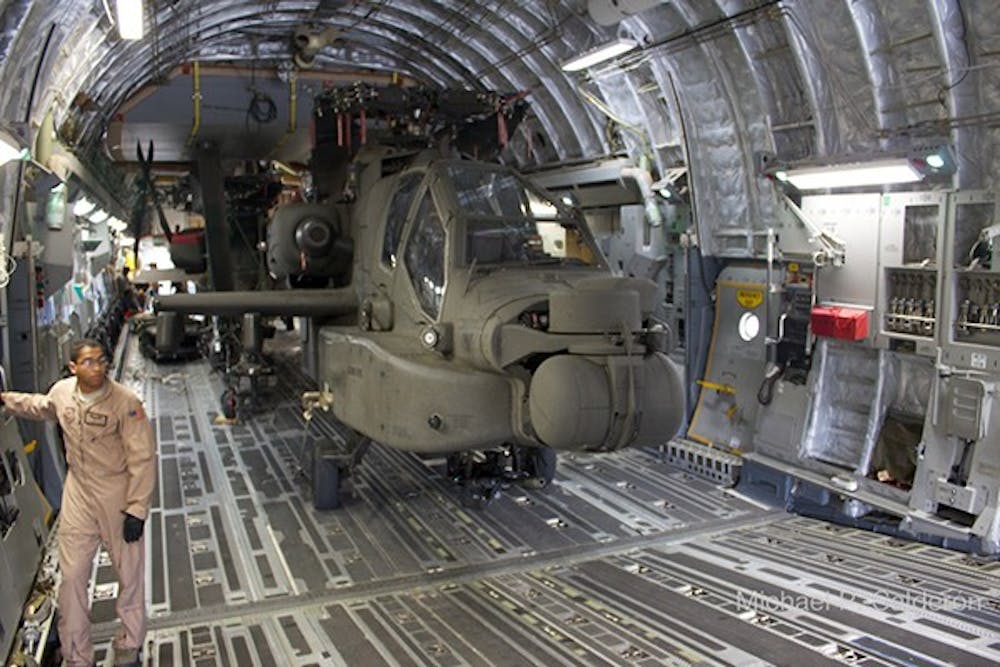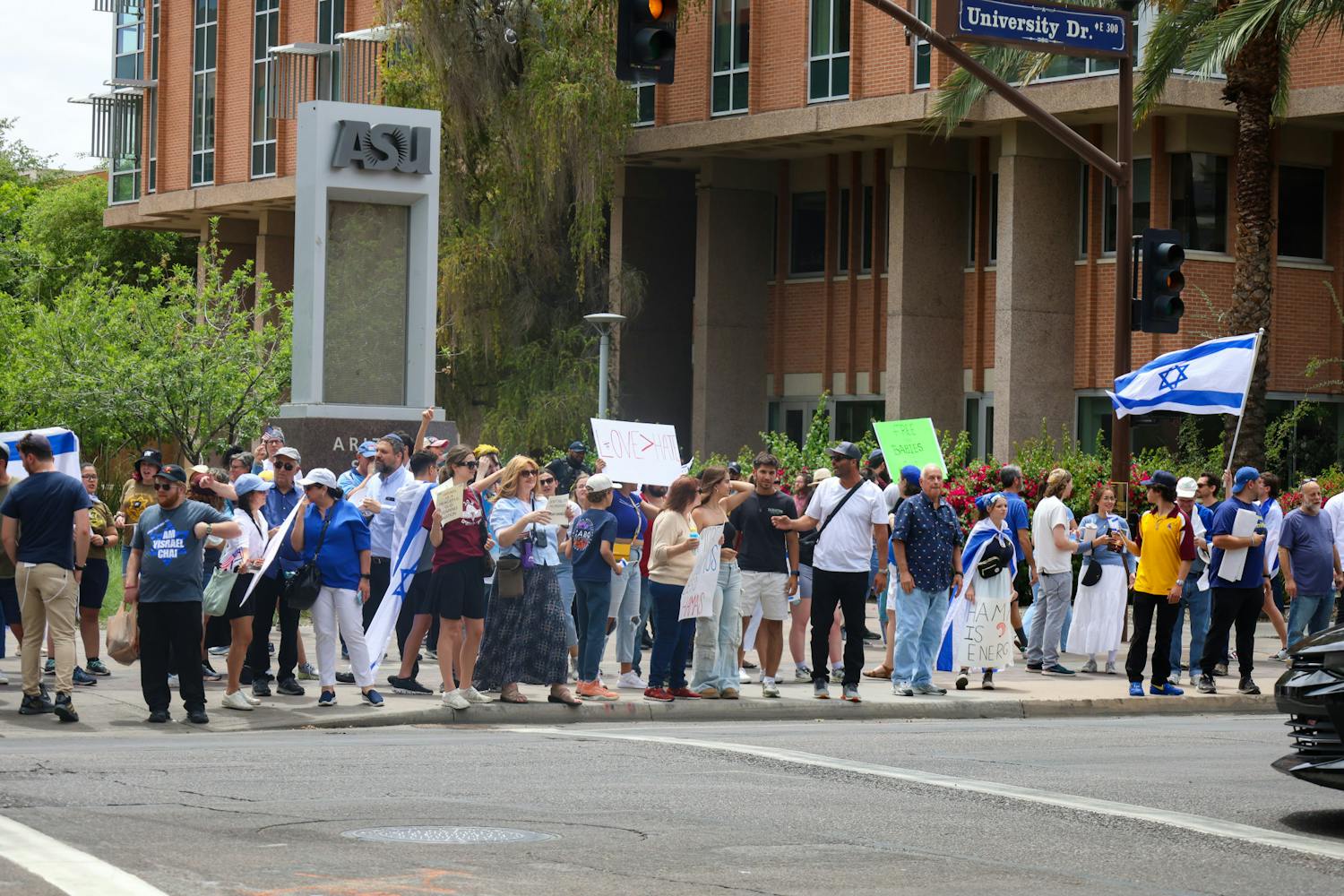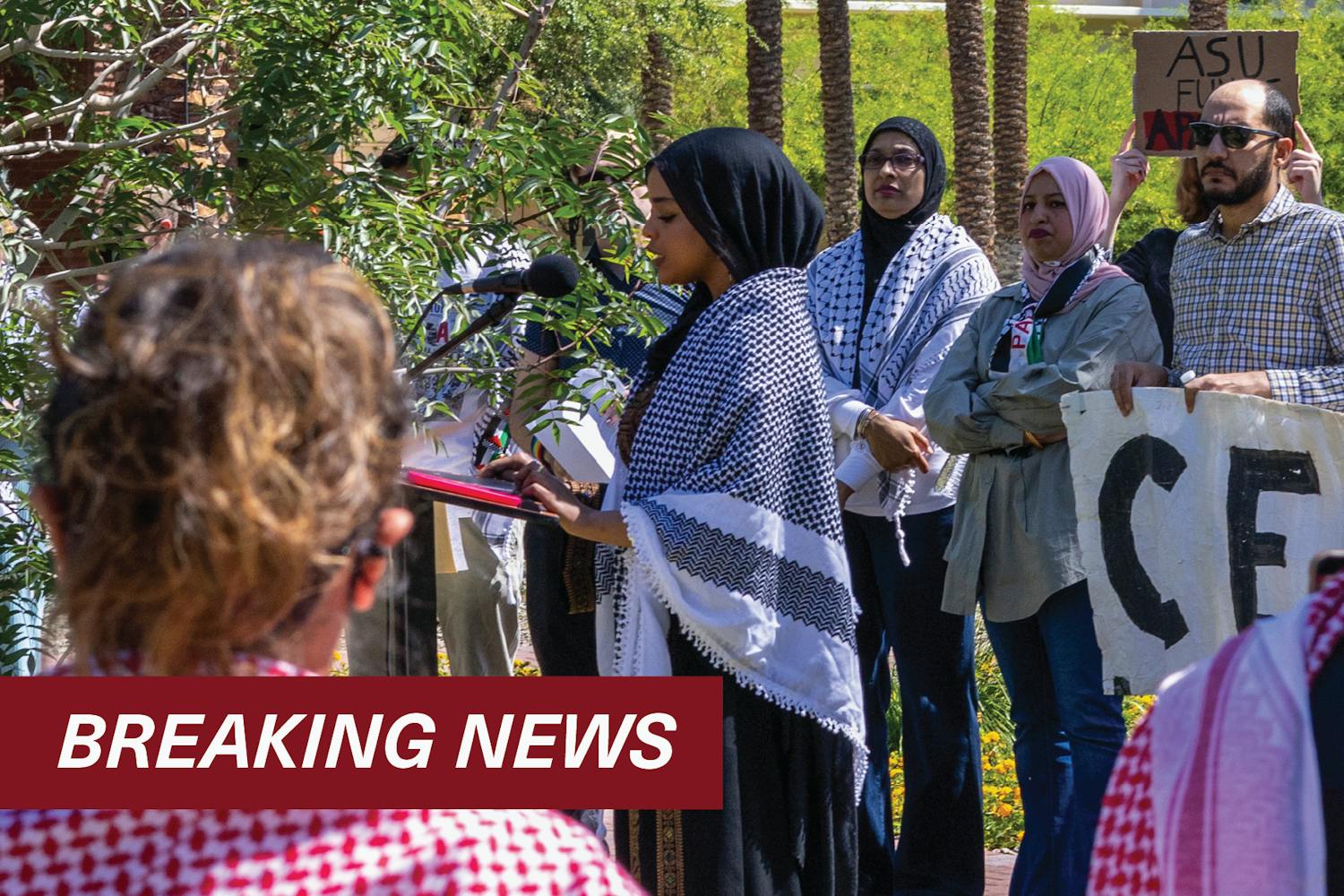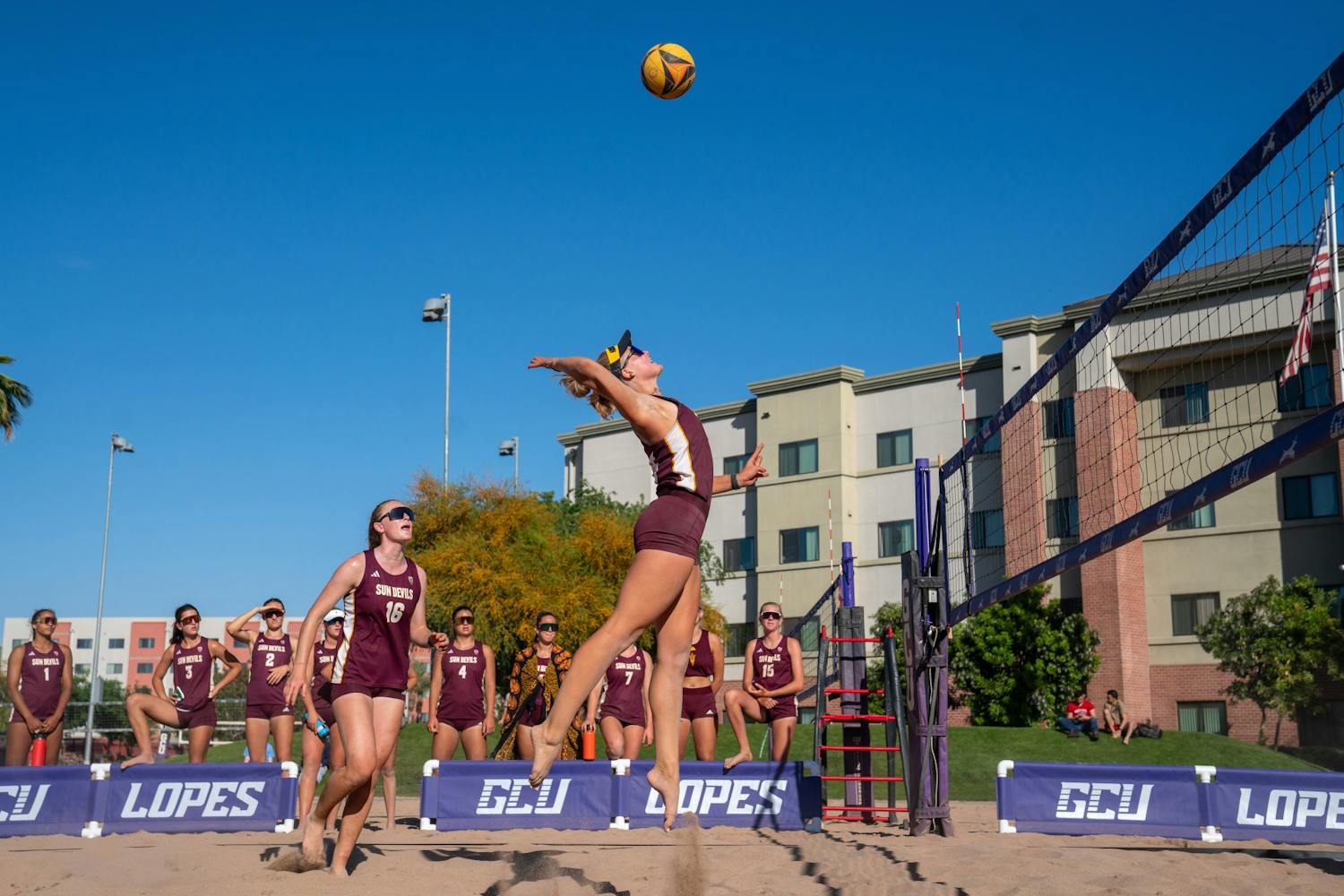 Workers at the Pat Tillman Veteran's Center assist student veterans with education benefits by phone and Internet. A majority of workers at the center are also student veterans. (Photo by Andrew Ybanez)
Workers at the Pat Tillman Veteran's Center assist student veterans with education benefits by phone and Internet. A majority of workers at the center are also student veterans. (Photo by Andrew Ybanez)
Electrical engineering junior Michael Calderon had been in the Air Force for four years when he returned to Arizona and enrolled at ASU. While in the military, Calderon had received 34 possible university credits, but ASU counted only two physical education credits toward his degree.
Calderon said ASU's restrictive policy for accepting credit gained in technical training makes it difficult for some military students and veterans.
"It would just make it more genuine as far as their claims," he said. "ASU has all these things about doing this, that and the other for veterans, but they don't really live up to that as far as I have seen. They didn't accept any credits, in my case, and I had a really technical job."
While in the Air Force, Calderon worked as the aeronautical load master, a job which required nine months of technical training where he learned to calculate an aircraft's weight and balance moments, to fix electronic malfunctions on aircraft and to handle in-flight maintenance.
 (Photo courtesy of Michael Calderón)
(Photo courtesy of Michael Calderón)
These nine months of training and subsequent years of applying his education taught him the basics of many topics, but now at ASU he has to retake classes he already learned.
"Had they accepted some of these credits, I probably could have gotten away with one less semester of schooling at ASU because not everything, like the weapons training, transfers, but the electrical and hydraulic, all that stuff left me wondering what they were looking for in qualifications,” he said.
Creating a new system
Capt. Steve Borden, director of Veteran Services, said the University is working on a plan to expand and change the way it accepts these credits and then applies them to different majors.
"This is one of the areas that ASU really has to differentiate itself in the marketplace of higher learning," he said. "The institution has found some very creative ways to lead the way in education, and I think this is one of the places we can lead the way in a new direction."
All soldiers receive a transcript that lists the college-level classes that are the equivalent of their military training. The American Council on Education uses the curriculum, quality of teaching and ways soldiers are evaluated before deciding to award credit this way.
However, once students are admitted to ASU, only the credits relative to their major will be considered for transfer, Borden said. These do not often include credits that could replace general education or elective requirements.
He said the University doesn't just transfer all the credits or include them as elective requirements, because this would mean students have too many credits.
When students have 150 percent of the credits required to graduate, the per-credit-hour tuition rate increases dramatically, which is something University officials must keep in mind when redesigning the system, Borden said.
"Is there a way that maybe we can find out for this to meet a technical requirement for a nontechnical major that could be construed as part of their general education credits?" he said. "Is there a way that we can do that and not award credit in such a way that would potentially jeopardize the University's accreditation?"
If ASU were to accept more of these credits, Borden said veterans and military students may be able to graduate sooner or pursue higher degrees.
"Where it does possibly affect something is veterans are going to stay in school as long as they can," he said. "If there is a way they can use their military training and education to accelerate their undergraduate degree, they may apply remaining GI Bill benefits toward a masters."
The GI Bill provides veterans with benefits, including aid in paying for college.
The military trains soldiers in many areas, including engineering, construction, foreign languages, public affairs and culinary arts. However, the training is often done with a specific purpose or machinery in mind, rather than teaching skills that would apply to a variety of equipment, functions and purposes, Borden said.
 (Photo courtesy of Michael Calderón)
(Photo courtesy of Michael Calderón)
Saving time and money
Aeronautical management technology senior John Yasar was in the Army for eight years. He went to officer and flight school while in the military and had many hours of flight training.
Now that Yasar is attending ASU for an aeronautical degree, he said he is retaking classes in things he was trained in while in the military.
"I was asking my professors (why some of my classes are the same),” he said. “For example, my human factors and aviation safety class. They said I didn't do this (specific aspect of training) while I was there, so it could cover the same topic, but I think there is some hands-on training I need."
Yasar said he thought changing the system would allow students to finish their degrees faster. He said if he had attended Embry-Riddle Aeronautical University in Prescott, he would have been able to finish his degree in a year or two, but at ASU, he expects to graduate in spring 2016.
"As far as the flight program is concerned, if they bring more experience from the military and those are applied to their degree, that will cut out time that we spend in school over here and then we go back to the work force real quick," he said.
Applied biological sciences junior Seth Haahr, who was a scout in the Army for four years, said he doesn't mind that his credits didn't transfer, but students could benefit by allowing more credits to transfer.
"It might be more beneficial, because they have a working knowledge (of the field they are entering from their military training), but for me, I have always loved learning and having the freedom to add more classes," Haahr said.
When chemistry senior P.J. Earl came to ASU in 2009, none of his military training transferred into university credit.
He thinks implementing a less restrictive policy would benefit soldiers, military students and taxpayers.
"More veterans would want to come to ASU, so they can get more credit and finish their degrees a lot sooner," Earl said. "It will also probably help out with the GI Bill, which is funded by taxpayer money. If a student doesn't have to take a class he is already knowledgeable in, then that will help."
How ASU compares
The policies for accepting technical training for university varies from college to college, with some universities awarding more or less credit than ASU or in different ways.
At the University of Texas-Austin, the admissions office will accept credits that apply to their coursework once they have been deemed acceptable by the American Council on Education, and each college within the university will determine which credits are most useful to the students, UT-Austin's Associate Director of Admissions Michael Washington said in an email.
The policy at Ohio State University has undergone changes that award general credit rather than deferred credit to military credit. Thus, students can work with university officials to apply some credits to their coursework, Ohio State University spokeswoman Amy Murray-Goedde said in an email.
Both the Ohio Board of Regents and the Ohio Legislature are working to make a uniform policy regarding how colleges and universities accept military students' and veterans' technical training as college credit.
She said OSU's policy tells students the university is serious about helping veterans and military students graduate faster while saving benefits and money.
"It helps them know we are serious about helping them achieve academic success," Murray-Goedde said. "It helps us by getting students who can strongly contribute in the classroom and campus from their experience and knowledge in the military."
Other universities, such as the University of Alabama, are also working on changing how they award credit to military students and veterans to make their university more military-friendly, said David Blair, director of the University of Alabama Office of Veteran's and Military Affairs.
In a meeting with The State Press editorial board Monday, ASU President Michael Crow said the University needs to be constantly re-evaluating the way it works with students to make things easier and better for everyone.
"What we need to do is what we always need to do and constantly be improving and enhancing (the system),” Crow said. “I did publicly call for formal recognition of military training as a pathway into the university. What we need to do is make it as seamless, as simple and as easy (to transition from military to university), and that takes a while."
Reach the reporter at sgslade@asu.edu or follow her on Twitter @shelbygslade




